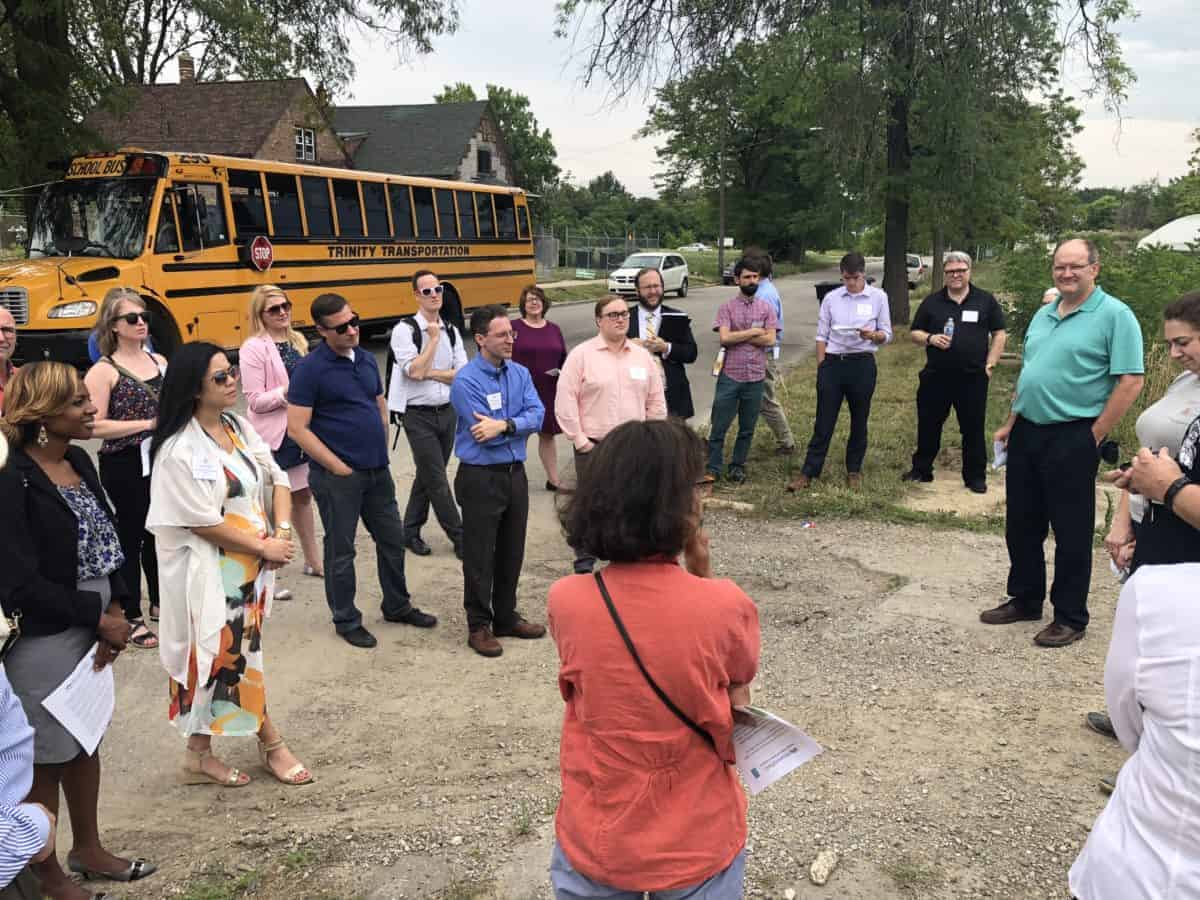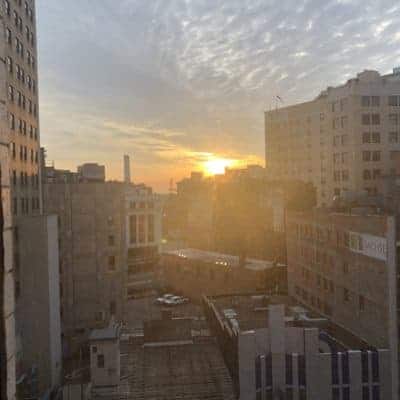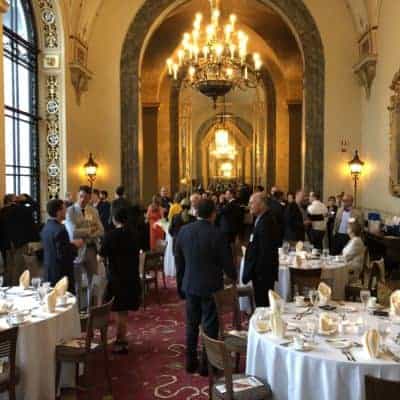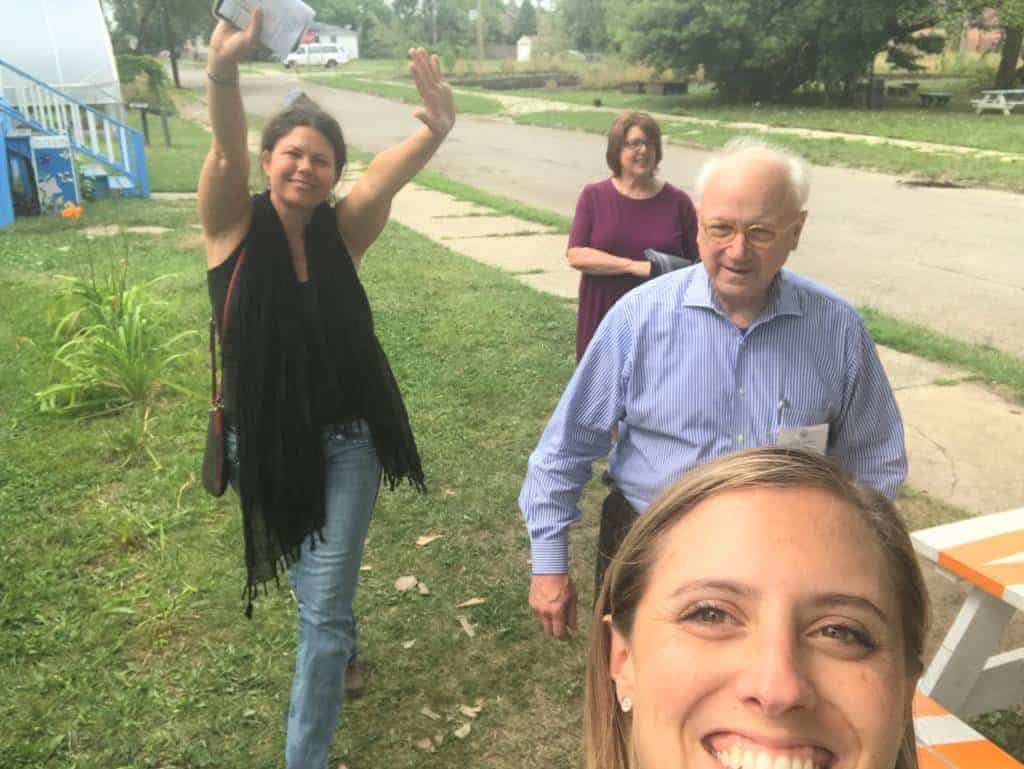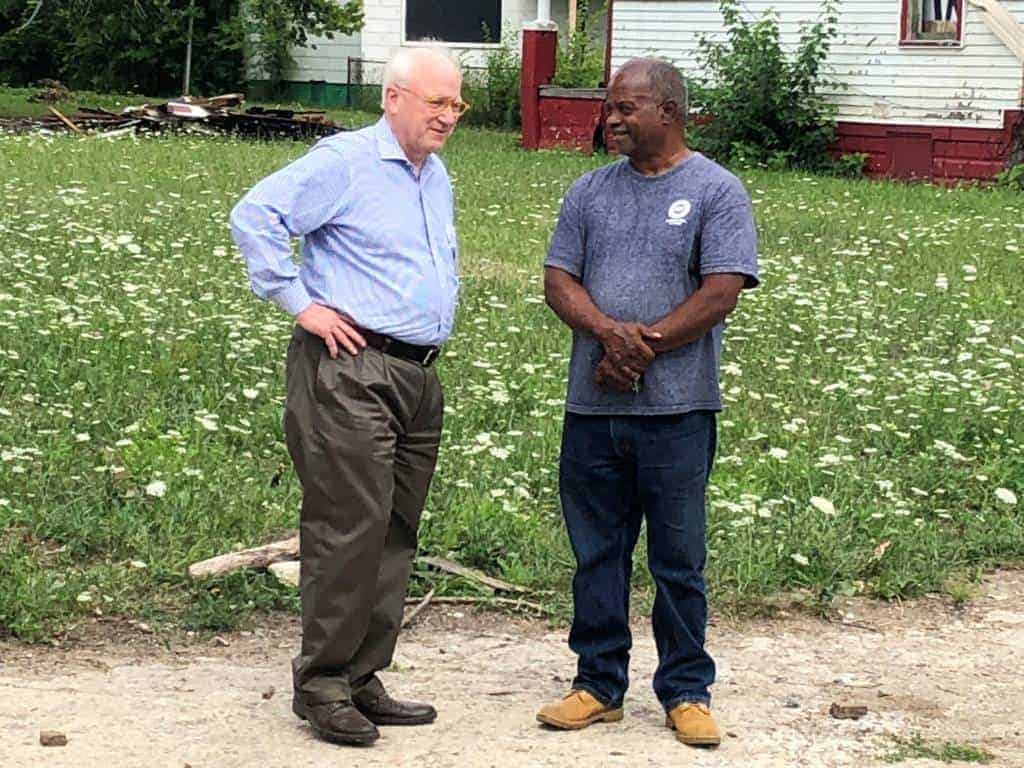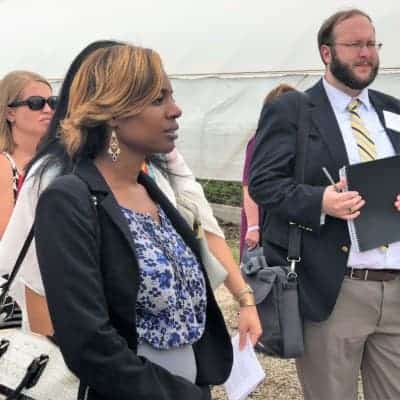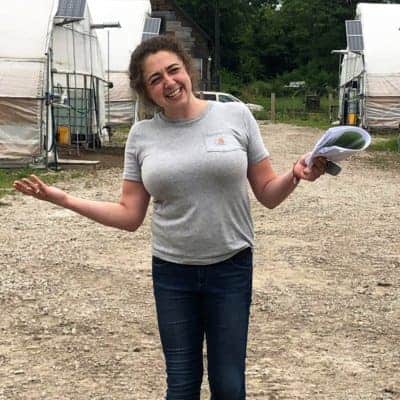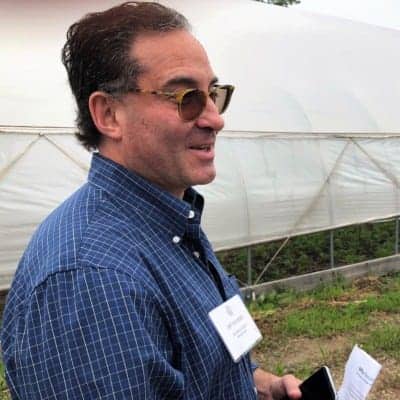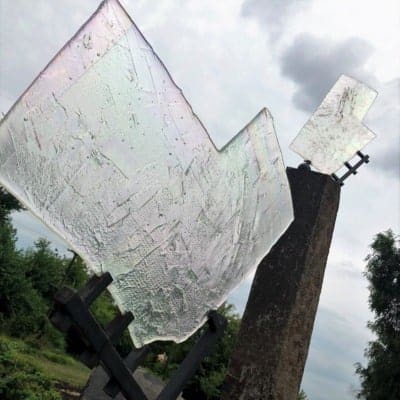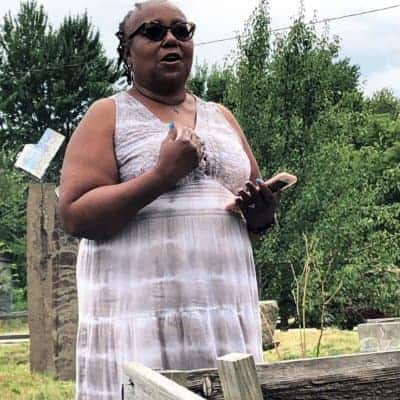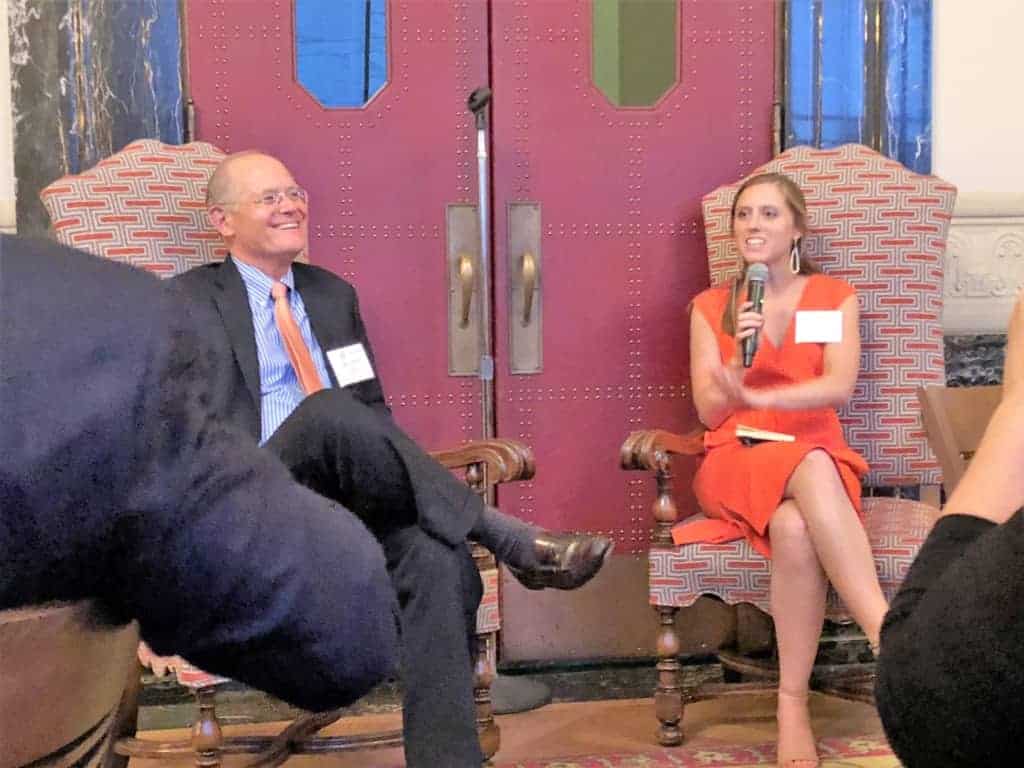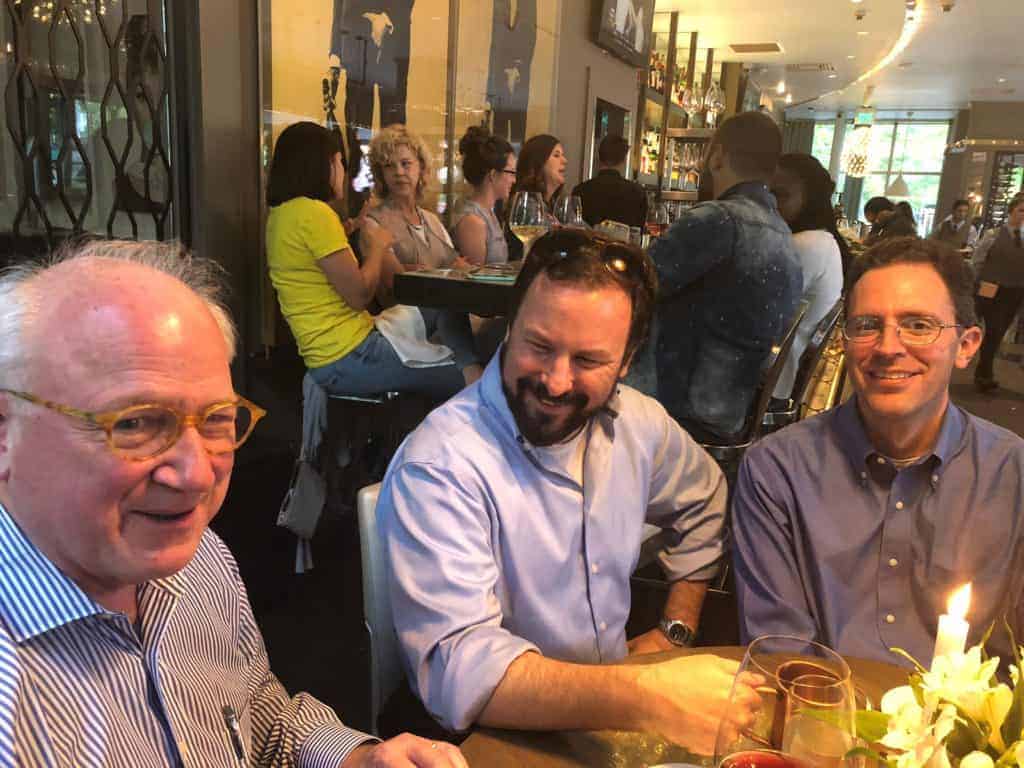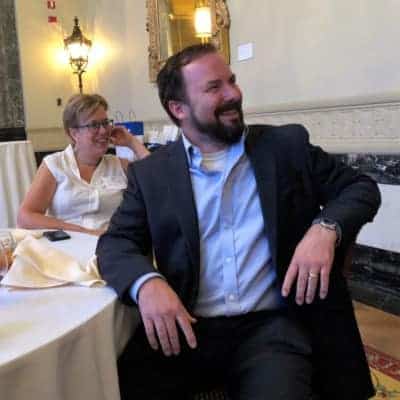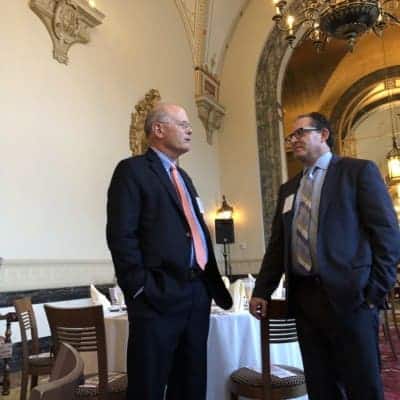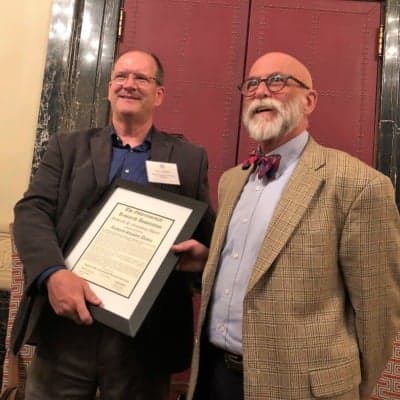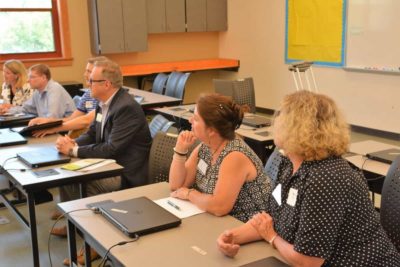This week, the Governmental Research Association (GRA) held its annual conference in Detroit. It was my privilege to be elected the president of this group of independent think tanks. Over the course of the next two years, together we will get to know the leadership of these organizations, their work, and why the work of “think-tanking” matters. This week, I was happy and proud to begin to take these organizations on a journey that will prepare them to be seen as “meaning makers” and “wayfinders” in our future by our world.
Happy
I attended my first GRA conference 10 years ago in Boston. In 2011, my parents accompanied me and my boys to the GRA conference in Chicago. My Dad sat in on all the panels about transportation. This year, EducationNC’s Ferrel Guillory, Nancy Rose, and Molly Osborne went with me.
For those of you that know me, you know I like to be out and about talking to people about public problems. Our field trip to the urban farms in Detroit was a highlight for me, especially Ferrel interviewing Bill Hebron about his crowder peas — because only Ferrel could find crowder peas in Detroit!
Between losing my Dad and surviving heart surgery all in one year, it was happy for me just to be in Detroit with my colleagues studying the issues we all care so much about. Molly’s Dad, David Osborne, joined us, giving the keynote interview. Molly interviewed her Dad, connecting his life and their family to his work and their desire to build a better world. Watching this father/daughter public policy team always brings me to happy tears, and other than having my Dad there, nothing could have made me happier than having David and Ferrel with us.
Ferrel learned about the GRA back when he was a reporter in New Orleans. He saw first hand the importance of think tanks like the Bureau of Governmental Affairs and the Public Affairs Research Council of Louisiana. When he moved to North Carolina, in an article he suggested North Carolina needed one, which at least in part led to the founding of the N.C. Center for Public Policy Research.
One night at dinner in Detroit, we realized that three editors of the Loyola Maroon were attending the conference. GRA lore is full of moments like these, moments of happy serendipity.
One of three editors was Peter Reichard. Peter spent much of his career at BGR in New Orleans and is now leading the way at the Utah Foundation. He is the outgoing president of the GRA, and I am ever thankful for his public service, his friendship, and his dreams.
My remarks at the conference on leading the GRA
“The first time I read N.C. Insight, the journal of the N.C. Center for Public Policy Research, I was 10 years old. In my double-digit pre-teen mind, the work we do was about building the perfect world, something like how I imagined Atlantis, which I was convinced still existed somewhere off the coast of North Carolina. I have wanted to do this work ever since.
For those of you that know Ran Coble, the former director of the Center, you know why at times like these we always lead with a poem.
This poem is by Wislawa Szymborska, and it is called Utopia:
Island where all becomes clear.
Solid ground beneath your feet.
The only roads are those that offer access.
Bushes bend beneath the weight of proofs.
The Tree of Valid Supposition grows here
with branches disentangled since time immemorial.
The Tree of Understanding, dazzlingly straight and simple,
sprouts by the spring called Now I Get It.
The thicker the woods, the vaster the vista:
the Valley of Obviously.
If any doubts arise, the wind dispels them instantly.
Echoes stir unsummoned
and eagerly explain all the secrets of the worlds.
On the right a cave where Meaning lies.
On the left the Lake of Deep Conviction.
Truth breaks from the bottom and bobs to the surface.
Unshakable Confidence towers over the valley.
Its peak offers an excellent view of the Essence of Things.
For all its charms, the island is uninhabited,
and the faint footprints scattered on its beaches
turn without exception to the sea.
As if all you can do here is leave
and plunge, never to return, into the depths.
Into unfathomable life.
In the now 25 years that I have been doing this work, I have learned it’s not about imagining Atlantis or utopia, it is about the public problems now in people’s lives in communities across our states and our nation — and the hope our work engenders and empowers in expecting a better tomorrow.
A couple of weeks ago, a middle school student named Miracle walked me around her neighborhood, Mobile City in eastern North Carolina. We talked about why kids don’t go to school, what they like and don’t like about school, literacy, and why relationships matter. She identified four reasons kids don’t go to school — it’s boring, it’s a lot of work, kids don’t like to use their brains, and they get picked on. That’s not the list our research came up with, but it’s a real list that begs for a different set of interventions.
We are leaving the next generation of Miracles a complicated web of public problems, including the polarized world we live in, and I believe it is more important than ever that everyone, including philanthropists and policymakers, understand what we do, how we do it, and why we do this work.
Take them to see the issues, the places you study. Arm them with their own stories of why our work matters.
When we teach people about our work, we create awareness about public problems, we reorient the focus towards the solutions, and we lay the groundwork for change.
My parents taught me how to do this work. Ran and Ferrel Guillory taught me how to do this work. Molly grew up in a family steeped in public policy. Ask yourself. Who taught you? And, more importantly, who are you teaching all that you have learned? Please think about where the intentional, inter-generational transfer of knowledge fits into your work and your life.
The next generation embraces change better than us, which is good since the business of our work, of think tanks, is changing. We have a whole lot of new tools in our toolbox — how we do our work, how we publish our work, how we disseminate our work — it’s all changing, and it all allows our work in powerful ways to become more proactive instead of reactive – but we have to build our organizations from staffing to funding to board structure to perform best in a constant state of change. We have to see ourselves and equip ourselves to be change managers. And that is hard.
But the good news is our work is not going away, and we need to work together to make sure our organizations are positioned to thrive individually and collectively.
I am very thankful for the robot that did my heart surgery in December, but that robot can’t do what I do and you do, and even with rapidly evolving artificial intelligence, robots and computers won’t be able to do our work. We are among the few, as Martin Ford notes in Rise of the Robots, “paid primarily to engage in truly creative work or ‘blue-sky’ thinking.”
At the Aspen Institute they talk about connecting the leadership of the self, the leadership of the organization, and the leadership of society. If we position our leadership that way, I believe the next generation of public policy researchers — from Molly to Criketa Matlock to Shawn Teigen — will be seen as the “meaning makers” and the “wayfinders” of our world.
And collectively we as the Governmental Research Association will continue to make sure the public in public policy drives change locally, statewide, and nationally in the 21st century for all the kids like Miracle, for all the neighborhoods like Mobile City, for my state and yours, for our nation and our world.”
Proud
Over the course of my tenure, the GRA will get a Twitter handle and a new website. But more importantly, I’ll lift up to you and the world the leadership of my colleagues, the work they do, and the impact they have.
In September, you will be able to follow along with me as I travel with Jeff Hornstein and the Economy League of Greater Philadelphia as he takes 150 leaders from Philly to Seattle for a leadership exchange and then launches a civic innovation lab.
I am proud of these leaders. I am proud of their research. I am proud to lead them. My Dad would be proud too.
About GRA
The Governmental Research Association was established in 1914 and is the national organization of individuals professionally engaged in governmental research. The purpose of the Association is to encourage individuals and organizations to engage in governmental research in the general interest. Governmental research involves the collection, analysis, and distribution of factual information on governmental activities to citizens and officials for the improvement of government and the reduction of its cost. In furtherance of this aim, the Association works to foster the establishment of governmental research agencies, aid and coordinate the activities of governmental research agencies, facilitate the exchange of ideas and experiences among the professional staff of such agencies, and undertake other related activities.
